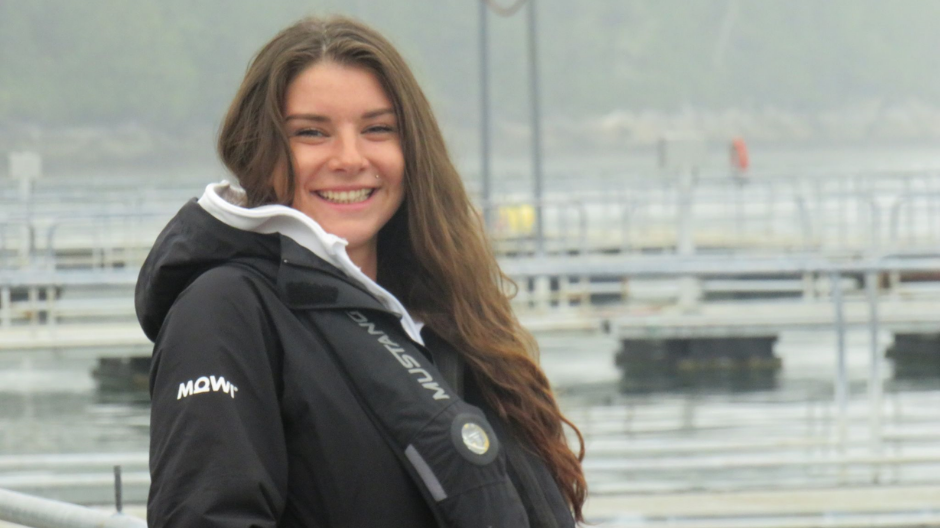
BC Salmon Farmer
Meet Kaitlin Guitard. She works as a Saltwater and Water Quality Technician for Mowi Canada at their Larsen Island Farm. Kaitlin is proud to take the utmost care to raise animals in a respectful and responsible way. She believes in the future of the aquaculture industry to provide healthy, sustainable products to our communities.
Find out more about how Kaitlin raises salmon off the coast of Vancouver Island, below:
We Heart Local BC: Can you tell us about the farm that you work at?
Kaitlin Guitard: Larsen Island is an Atlantic Salmon smolt site. Smolt are the young fish we receive at our farm when they are 100 grams (which is about the weight of a medium sized tomato). We are the very first care givers the smolts have when they enter the sea, so it is important we give them an environment where they can thrive. We have a 12-pen system that is double wide (two rows of 6 side by side). Each pen is designed specially to meet the husbandry and care standards for the density of fish that live in the pens. That means our fish are only held at numbers which are appropriate for the environment and their stage of development. We raise the smolts until they average 500-600g. At this weight they are moved from our farm to another that is structurally designed to raise the fish from this larger size to harvest (5-6kg).
WHL: How do you care for the health and wellbeing of your fish?
KG: All farmers know that caring for your animals is the first step in providing a premium product!
The five animal freedoms are something we live by on all our farms:
- Freedom from thirst and hunger and malnutrition: All fish are provided a diet that is formulated to meet their specific nutritional requirements.
- Freedom from discomfort and pain: Our salmon are in an environment that is suitable for their physiological needs. Things like temperature, salinity, and water chemistry are monitored every day and we check water quality every morning before any other tasks.
- Freedom to express naturally motivated behavior: Our fish are raised in densities that are suited for the size of the fish and environment.
- Freedom from pain, injury, or disease: Our fish have routine health checks by a team of fish health experts and our veterinarians. Any potential health issues are identified quickly, and we treat our fish with medication only when required.
- Freedom from fear and distress: All handling and transportation is done carefully according to protocols to avoid causing stress for the animals.
WHL: What kind of certifications are in place to ensure standards are being met?
KG: Our company has two forms of certifications. The first one is Best Aquaculture Practices (BAP). This is a third-party certification that ensures we are following practices that optimize food safety, environment, and social concerns. It is the only aquaculture certification that encompasses the entire production chain, from the hatchery and feed mill, to the farms and processing plant.
The second certification that has been achieved by our ‘grow out’ farms (where the fish reach harvest weight) is the Aquaculture Stewardship Council. You may have seen the blue label with ASC and the check mark on seafood you buy in the grocery store. This certification has over 500 items in the standard and the audit takes three days to complete. ASC certification has six main principals that farms must meet:
- Comply with all applicable national laws and local regulations
- Conserve habitat, biodiversity, and the ecosystem
- Protect wild salmon
- Use of natural resources
- Fish health
- Social responsibility
All of the information about the ASC certification is available online.
WHL: Why do you choose to be involved in agriculture?
KG: I am a highly motivated and eager individual wanting to make a positive change for our society and future generations; this was one of the main drivers behind my entry into salmon production. My core values around food security and sustainability tie into the goals that the salmon industries promote and stand by. I strongly believe that aquaculture is and will be the future for sustainable food production, and for that reason I am determined to be an individual who is a part of this movement.
